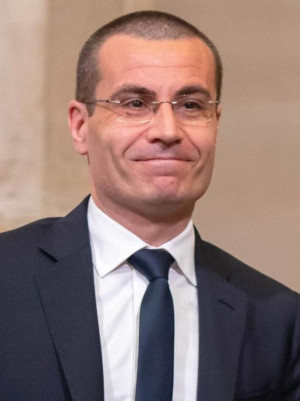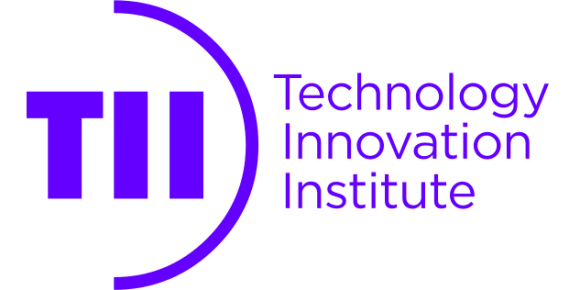Monday 4 September 2023, 09:00 – 12:30
Room: Meridian 3
WS1. Key Technology Enablers for 6G: AI and Intelligent Metasurfaces
Abstract: The stringent requirements set forth by demanding applications in 6G scenarios call for an extensive use of the available frequency bands (from sub-GHz to THz), sophisticated antenna designs, and advanced transmission techniques. Extending the knowledge of the propagation conditions in such future environments is essential to identify the fundamental and achievable performance limits.
Reconfigurable intelligent surfaces (RIS) and Reconfigurable holographic surfaces (RHS) will play a pivotal role in advanced 6G communication systems and networks. Specifically, RIS leverage smart radio surfaces with a high number of small antennas or metamaterial elements based on a programmable structure that can be used to control the propagation of electromagnetic waves. RHS with multiple input multiple output (MIMO) setup are composed of numerous metamaterial radiation elements integrated in a holographic pattern to generate beams with desirable directions.
The inherent complexity of these communication scenarios with smart environments powered by RIS, RHS, and the integration of novel functionalities such as integrated sensing and communications (ISAC) systems evidences the crucial role to be played by AI/ML for the design and optimization of an adaptive physical layer.
This workshop leverages, on the one hand, the work carried out by the INTERACT COST Action which is aimed at proposing novel designs and strategies for making future radio communication networks intelligent, as well as contributing to the creation of intelligent environments. And, on the other, it builds one the successful series of Workshops on Reconfigurable Intelligent and Holographic Surfaces for Communications and Networking, the fifth edition of which will take place at the IEEE MeditCom 2023.
This workshop will provide a forum for leading researchers from academia and industry to share their recent findings on how artificial intelligence can impact the physical and lower layer of 6G communication systems, with emphasis on RIS/RHS and integrated communications and sensing technologies.
Organizers:
- Aryan Kaushik, University of Sussex, UK
- Carles Antón-Haro, CTTC, Spain
- Diana P. Moya Osorio, CWC, University of Oulu, Finland
- Haris Pervaiz, University of Essex, UK
- Marco Di Renzo, Paris-Saclay University, France
- Mate Boban, Huawei Technologies Duesseldorf, Germany
- Muhammad Z. Shakir, University of the West of Scotland, UK
- Nemanja Stefan Perovic, Paris-Saclay University, France
- Wonjae Shin, Ajou University, South Korea
Keynote 1: Towards an adaptive multifunctional disaggregated PHY based on cell-free massive MIMO and Open RAN
 Speaker: Prof. Alister Burr (University of York)
Speaker: Prof. Alister Burr (University of York)
Abstract: Next generation wireless systems will need to operate over a wide range of densities and scales to serve a wide variety of users and devices. This has significant implications for the architecture of the infrastructure that will provide them, especially in terms of sustainability. The concepts of Open RAN and Cell-free Massive MIMO (CFmMIMO) have come to the fore in recent years. Both involve a more distributed approach to the design of the radio access network (RAN), including the physical layer (PHY) - iIn fact disaggregation of the PHY is a core principle of Open RAN. In this presentation we describe these concepts and discuss how they can be combined to provide an adaptive, multifunctional and sustainable approach to implement a next generation PHY. We discuss also the role artificial intelligence and machine learning might play in such a network to improve both performance and sustainability, and also the crucial role of propagation research in the development of the approach.
Keynote 2: On the Degrees of Freedom and Optimal Waveforms of Holographic MIMO
 Speaker: Prof. Marco Di Renzo (CentraleSupelec)
Speaker: Prof. Marco Di Renzo (CentraleSupelec)
Abstract: Holographic MIMO is an emerging communication technology. The reference setup consists of two holographic surfaces (HoloSs) communicating with each other, with a HoloS being an electrically large antenna that is made of a virtually infinite number of radiating elements coupled with electronic circuits and a limited number of radio frequency chains. From a theoretical standpoint, the transmitting HoloS is capable of synthesizing any arbitrary surface current density and, hence, any radiated electromagnetic field, and the receiving HoloS is capable of sensing any impinging electromagnetic field. In this talk, we will discuss the theoretical foundation of Holographic MIMO with focus on the optimal multiplexing gain and communication waveforms.
Workshop Program
WS1.1: AI-Based Approaches for 6G
Date/Time: Monday, September 4, 9:00 - 10:30
Room: Meridian 3
Keynote Speaker: Prof. Alister Burr (University of York, United Kingdom)
Chair: Laurent Clavier (Institut Mines-Telecom, IMT Nord Europe, France)
Presentations:
- Deep Learning-aided Robust Integrated Sensing and Communications with OTFS and Superimposed Training
Lianet Mendez-Monsanto Suarez (Universidad Carlos III de Madrid, Spain); Kun Chen-Hu (Aalborg University, Denmark & Universidad Carlos III de Madrid, Spain); Maria Julia Fernandez-Getino Garcia (University Carlos III of Madrid, Spain); Ana Garcia Armada (Universidad Carlos III de Madrid, Spain) - Sub-THz Ray Tracing Simulation and Experimental Validation for Indoor Scenarios
Zhiqiang Yuan (Beijing University of Posts and Telecommunications, Denmark & Aalborg University, Denmark); Yejian Lyu (Aalborg University, Denmark); Jianhua Zhang, Pan Tang, Ximan Liu and Jiaxin Lin (Beijing University of Posts and Telecommunications, China); Sigurd Petersen and Wei Fan (Aalborg University, Denmark)
WS1.2: RIS Advancements for 6G
Date/Time: Monday, September 4 11:00 - 12:30
Room: Meridian 3
Keynote Speaker: Prof. Marco Di Renzo (Paris-Saclay University, France)
Chair: Aryan Kaushik (University of Sussex, United Kingdom)
Presentations:
- Reconfigurable Intelligent Surface Assisted PNC System with Multiple Antennas
Mert Ilguy and Berna Özbek (Izmir Institute of Technology, Turkey); Leila Musavian (University of Essex, United Kingdom (Great Britain)); S Mumtaz (GS-lda, Portugal) - Reconfigurable Intelligent Surfaces Assisted Communication Under Different CSI Assumptions
Bayan Al-Nahhas (University of British Columbia, Canada); Qurrat-Ul-Ain Nadeem (University of British Columbia & King Abdullah University of Science and Technology, Canada); Aryan Kaushik (University of Sussex, United Kingdom (Great Britain)); Anas Chaaban (University of British Columbia, Canada)
Monday 4 September 2023, 14:00 – 17:30
Room: Meridian 2
WS2. First Int. Workshop on Cybersecurity in Healthcare and Medicine
Abstract: The First International Workshop on Cybersecurity in Healthcare and Medicine (CyHeMe) fosters discussion related to information security and cybersecurity resulting from the need to build secure, reliable and robust systems and services that not only support healthcare and medicine, but also foster well-being, encourage patients and the population in general to live according to healthy lifestyle recommendations, and address the specific safety needs of an aging population. This multidisciplinary workshop will bring together practitioners and researchers from relevant disciplines. Among other objectives, CyHeMe aims to: i) develop approaches that support multiple perspectives of information security and cybersecurity in healthcare and medicine; ii) develop or refine methods for achieving and raising cybersecurity of systems and services that promote well-being or health; and iii) identify open research and industry challenges, as well as validation objectives for proposed solutions.
Organizers:
- Hrvoje Belani, Ministry of Health, Zagreb, Croatia
- Krešimir Šolić, J. J. Strossmayer University of Osijek, Croatia
- Kristina Fišter, University of Zagreb, Croatia
- Ana Madevska-Bogdanova, Ss. Cyril and Methodius University, Skopje, North Macedonia
- Toni Perković, University of Split, Croatia
- Tatjana Lončar-Turukalo, University of Novi Sad, Serbia
Keynote 1: Emerging Digital Technologies and Risks: Where are the Security Issues when Using AI, Blockchain, and Telemedicine in eHealth?
 Speaker: Assoc. Professor Martin Žagar, Ph.D., EMBA, Scientific Advisor in Computer Science, RIT (Rochester Institute of Technology) Croatia
Speaker: Assoc. Professor Martin Žagar, Ph.D., EMBA, Scientific Advisor in Computer Science, RIT (Rochester Institute of Technology) Croatia
Abstract: We are eyewitnesses of digital transformation in every aspect of our lives, when talking about emerging technologies in eHealth, such as Artificial Intelligence (AI), Blockchain, and Telemedicine, we talk about numerous benefits in terms of improving patient care, data management, and healthcare efficiency. However, these technologies also introduce specific cybersecurity risks that need careful consideration.
AI systems in eHealth often rely on vast amounts of patient data for training and decision-making. This data may include sensitive medical records or diagnostic images. The improper handling of this data, such as insufficient or improper encryption, could lead to data breaches and unauthorized access. AI systems can also be vulnerable to adversarial attacks, where malicious inputs are designed to deceive the AI algorithms, leading to inaccurate diagnoses or treatment recommendations, or may inherit biases present in the training data, leading to unequal treatment or misdiagnoses for certain patient groups. From the Blockchain perspective, smart contracts used in eHealth applications may contain vulnerabilities that could be identified by attackers to manipulate transactions or gain access to sensitive data. While blockchain is known for its security and immutability, privacy risks may arise when personal health information is stored on a public blockchain, potentially leading to de-anonymization. Blockchain applications in eHealth could also involve supply chain tracking of medical devices or identity management, which could be targeted by attackers to disrupt the healthcare supply chain or engage in identity theft. Finally, Telemedicine relies on secure networks for real-time communication between healthcare providers and patients. Weak encryption or vulnerabilities in communication protocols could lead to eavesdropping and unauthorized access to Telemedicine sessions. Patient data transmitted during Telemedicine sessions may be intercepted, compromising patient privacy and confidentiality.
Biorgraphy: Martin Žagar has been awarded with EMBA title from Cotrugli Business School 2016, Ph.D. title in Computer Science from the UNIZG, FER in 2009, University Postgraduate Specialist of Eco-engineering in Forestry title from the UNIZG, FKIT in 2006 and Diploma in Study of Management title from the UNIZG, FER in 2005. Since January 2018 he is affiliated with RIT Croatia as an assistant professor. He has been elected as Scientific advisor, Senior research associate and Research associate in the field of Computer Engineering in 2019, 2012, and 2011 respectively. His occupational fields are multimedia computer architectures and telemedicine. He has participated in several domestic and international scientific projects and also participated in supervising the Information system in primary healthcare in the Republic of Croatia and is co-author of the Concept of Integrated Central System Authentication and Authorization. He was Program Chair of conferences “e-Health 2014 IT Systems 2014”; “IT Systems 2013 e-Health 2013” and “IT Systems 2012 e-Health & m-Health 2012” and Technical Chair of conferences “IT Systems, Security and Smart Cards 2011; e-Health 2011” and “Conference IT Systems & Smart Card Solutions 2010” as well as Associate Editor of the international journal Open Computer Sciences (2010 - present). He is awarded with Vera Johanides award for the year 2012, assigned to young scientist which, during the last five years, has accomplished notable personal, scientific and professional advancement and who has achieved discernible contribution to the field of his scientific interest (Croatian Academy of Engineering); Roberto Giannini award for the academic year 2010/11 for excellence in teaching and working with students; Silver plaque Josip Lončar for outstanding Ph.D. dissertation for the academic year 2008/09 and Josip Lončar award for extraordinary student success (GPA 5.00 on scale 1 to 5), academic year 2002/03. He is a member of IEEE, AASCIT, HiPEAC and Croatian Academy of Engineering.
Workshop Program
WS2.1: Human Factors in eHealth Cybersecurity
Date/Time: Monday, September 4, 14:00 - 15:30
Room: Meridian 3
Chair: Toni Perkovic (University of Split, FESB, Croatia)
Presentations:
- Patients' perception of data security in healthcare information systems
Krunoslav Antoliš (University of Applied Sciences in Criminal Investigation and Public Security, Croatia); Dubravka Jakšetić (Jakšetić, Croatia) - Securing Patient Information in Connected Healthcare Systems in the Age of Pervasive Data Collection
Ace Dimitrievski (Faculty of Computer Science and Engineering, Macedonia); Tatjana Loncar-Turukalo (University of Novi Sad, Serbia); Vladimir Trajkovik (Faculty of Computer Science and Engineering, Macedonia, the former Yugoslav Republic of) - The Art as a form if raising awareness of data protection in Healthcare and Medicine
Kristina Drusany Starič MD (University Medical Centre Ljubljana & Medical Faculty, University of Ljubljana, Slovenia); Breda Sturm (Independent Art Worker, Slovenia) - Investigating Privacy and Security Concerns in a Running eHealth Information System
Viktor Denkovski, Irena Stojmenovska, Goce Gavrilov and Vladimir Radevski (UACS, Macedonia, the former Yugoslav Republic of); Vladimir Trajkovic (Ss. Cyril & Methodius University, Faculty of IT, Macedonia, the former Yugoslav Republic of)
WS2.2: Technical Aspects of eHealth Cybersecurity
Date/Time: Monday, September 4, 16:00 - 17:30
Room: Meridian 3
Keynote Speaker: Martin Zagar (Rochester Institute of Technology, Croatia)
Chair: Hrvoje Belani (Ministry of Health & University of Split, Croatia)
Presentations:
- An Investigation of a Replay Attack on LoRaWAN Wearable Devices
Toni Perkovic (University of Split, FESB, Croatia); Josip Sabic (University of Split, Croatia); Kristina Zovko (University of Split, FESB, Croatia); Petar Solic (University of Split & FESB, Croatia) - Ontology-Based Cybersecurity for Well-Being, Aging and Health: A Scoping Review
Hrvoje Belani (Ministry of Health & University of Split, Croatia); Petar Solic (University of Split & FESB, Croatia); Toni Perkovic and Kristina Zovko (University of Split, FESB, Croatia)




